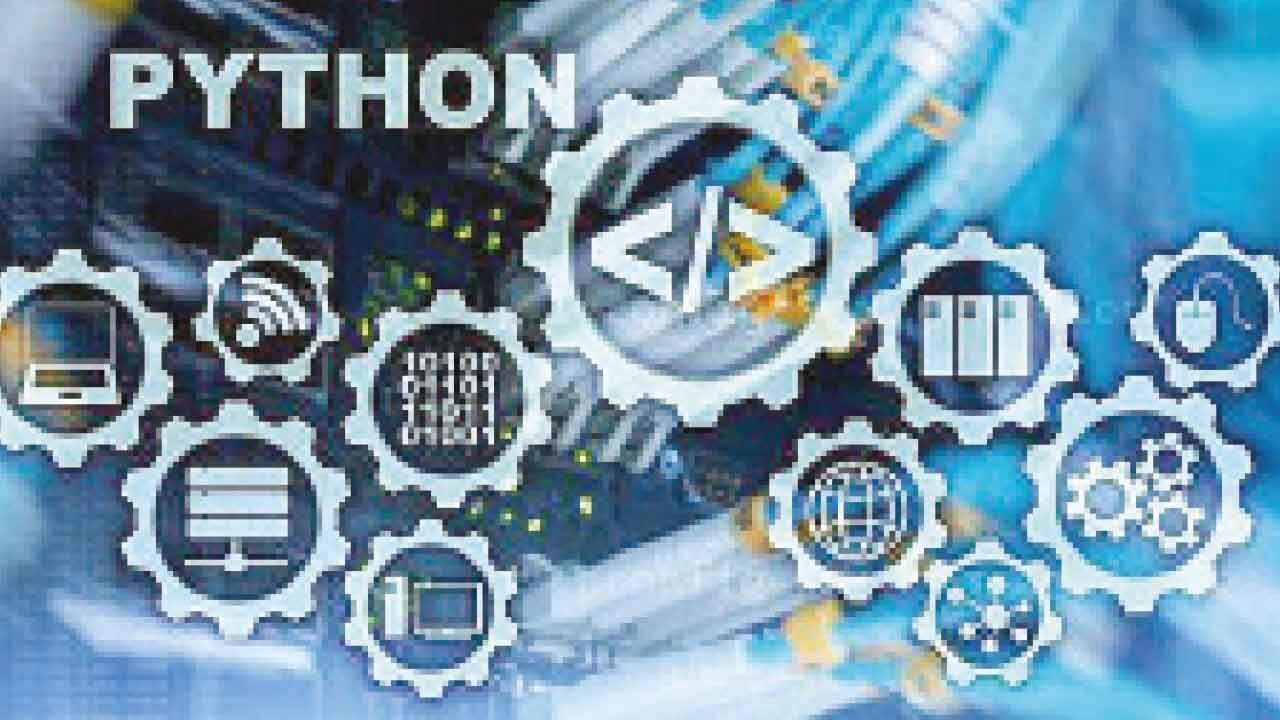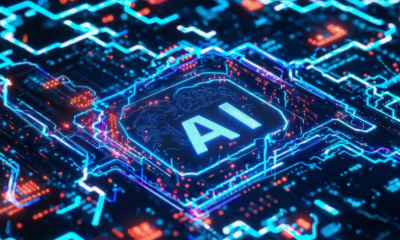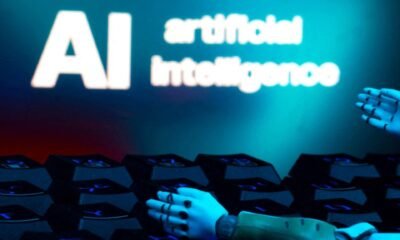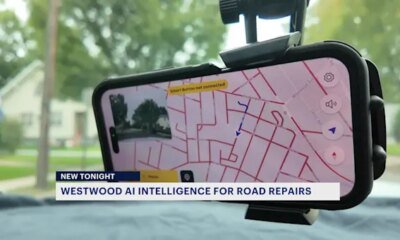AI Research
AI And Entrepreneurship Education: Preparing Students To Lead

preparing students to lead in an AI-driven world
Research indicates a fivefold increase in demand for AI skills, yet most schools still ban the use of ChatGPT. A recent survey found that 70% of graduates believe generative AI should be integrated into coursework, and more than half said they felt unprepared for the workforce. At the same time, 66% of teens aged 13-17 express interest in starting their own businesses, according to Junior Achievement data.
The disconnect is apparent: students want to build careers around emerging technology, but traditional education isn’t teaching them how. While schools debate AI policies, forward-thinking programs are already training middle schoolers to launch AI-powered ventures and solve real problems. They’re not preparing students for tomorrow’s job market. They’re teaching them to create it.
Real-World Learning Replaces Theoretical Education
The most effective programs abandon traditional classroom simulations in favor of authentic business creation. Students don’t earn grades—they gain customers, revenue, and practical skills that transfer directly to college applications and future careers.
At WIT (Whatever It Takes), which I started in 2009, teens launch actual businesses and social movements that address real community problems. In the college-credit programs, students pitch for actual prize money, receive real-time coaching from successful entrepreneurs, and develop presentations that have landed participants in major publications.
We ask participants one question: “What problem are you passionate about solving?” We then provide the tools, mentorship, and structure to help them build effective solutions.
WIT has worked with over 10,000 young people, providing leadership and entrepreneurial education through hands-on experience. The results speak volumes—our alumni consistently report higher confidence levels, stronger college applications, and clearer career direction compared to peers who only engage in traditional academic activities or simulation business programs.
This shift toward authentic learning experiences isn’t limited to K-12 education. As the demand for AI skills explodes across industries, universities are also abandoning traditional lecture-based models in favor of programs that prepare students to create rather than just consume technology.
Universities Embrace AI Integration
University of South Florida (USF) made history as the first university in Florida—and among the first nationally—to create an entire college dedicated to AI and cybersecurity. The Bellini College of Artificial Intelligence, Cybersecurity and Computing will welcome 3,000 students this fall, with plans to double enrollment in the first five years.
The timing reflects urgent market demands. Research indicates a fivefold increase in demand for AI skills in U.S. jobs, while more than 40% of organizations report being unable to find enough qualified cybersecurity professionals. The National Science Foundation awarded over $800 million for AI-related research in a single year.
“As AI and cybersecurity quickly evolve, the demand for professionals skilled in these areas continues to grow,” USF President Rhea Law explained. “Through the expertise of our faculty and our strong partnerships with the business community, the University of South Florida is strategically positioned to be a global leader in these fields.”
Dr. John Licato, Associate Professor at The Bellini College of Artificial Intelligence, Cybersecurity and Computing, puts this educational shift in perspective: “AI and cybersecurity already touch every single job on earth. Universities everywhere are trying to incorporate these technologies into their programs so students can practically leverage them, but at the same time further develop their own critical thinking and reasoning.”
USF Provost Dr. Prasant Mohapatra told me, “We’re not just producing job seekers—we’re producing job creators.” The college leverages USF’s existing strengths—approximately 200 faculty members already conduct research in related disciplines—while positioning the Tampa Bay region as a technology hub.
USF’s bold move breaks from traditional models of higher education. Most universities incorporate AI courses into their existing programs. USF built an entire college around emerging technologies, combining technical training with business education because students need both skills to succeed.
Bridging the K-12 AI Knowledge Gap
Teenagers already use AI tools regularly. Data shows 63% of U.S. teens use chatbots and text generators for schoolwork. Yet most schools ban these tools or label them as cheating. This creates a problem: students learn AI exists, but not how to use it ethically.
WIT created WITY to fill this gap. Our AI platform helps teens develop business ideas and conduct market research to inform their entrepreneurial endeavors. Students learn to work with AI without losing their creativity or critical thinking abilities.
USF also works with younger students. The Bellini College offers workshops for K-12 students through partnerships with education programs. These sessions introduce kids to AI concepts through hands-on projects.
Dr. Mohapatra shared his philosophy with me: “We want to show kids that AI isn’t something to fear. It’s something they can learn to use responsibly and creatively.”
AI Success Metrics That Matter
Programs that successfully prepare students for an AI-driven economy share several characteristics:
Authentic challenges: Students tackle real problems with genuine consequences, not hypothetical scenarios designed for assessment.
Interdisciplinary approach: Effective programs integrate technology, business, ethics, and social impact rather than teaching these subjects in isolation.
Confidence development: Students learn self-advocacy, self-worth, and self-value through entrepreneurial experiences. These capabilities transfer to college applications, job interviews, and leadership roles.
Early exposure: Rather than waiting until senior year, these programs introduce innovative thinking in middle school and early high school.
Research supports this approach. A 2022 Gallup survey found that students involved in entrepreneurship programs were 34% more likely to develop leadership skills and 41% more likely to report feeling prepared for future careers.
The AI Competitive Advantage
Students emerging from these programs possess advantages that traditional education alone cannot provide. They understand how to identify market opportunities, collaborate effectively with AI tools, and communicate their ideas clearly to diverse audiences.
College admissions officers increasingly recognize entrepreneurship as a marker of leadership, innovation, and problem-solving ability. Students who can demonstrate how they built something from the ground up bring more than just an application; they get a track record of action.
These experiences provide rich material for personal statements and interviews while demonstrating the initiative and resilience that colleges value in their incoming classes.
Building Tomorrow’s AI-Driven Economy Today
Programs that combine AI literacy with entrepreneurial education create an exponential multiplier effect. Students don’t just learn to use existing tools—they develop the creative mindset to identify problems that AI can solve and the business acumen to turn those solutions into viable ventures.
The students graduating from these programs represent a new breed of innovator. They’re not just prepared for an AI-driven economy—they’re actively architecting it, armed with both deep technological fluency and the entrepreneurial skills to transform breakthrough ideas into market-changing impact. This represents a fundamental shift in educational philosophy—from preparing students for predetermined career paths in a static economy to empowering them to create entirely new industries and opportunities in our rapidly evolving technological landscape.
AI Research
How to Scale Up AI in Government

State and local governments are experimenting with artificial intelligence but lack systematic approaches to scale these efforts effectively and integrate AI into government operations. Instead, efforts have been piecemeal and slow, leaving many practitioners struggling to keep up with the ever-evolving uses of AI for transforming governance and policy implementation.
While some state and local governments are leading in implementing the technology, AI adoption remains fragmented. Last year, some 150 state bills were considered relating to the government use of AI, governors in 10 states issued executive orders supporting the study of AI for use in government operations, and 10 legislatures tasked agencies with capturing comprehensive inventories.
Taking advantage of the opportunity presented by AI is critical as decision-makers face an increasing slate of challenging implementation problems and as technology quickly evolves and develops new capabilities. The use of AI is not without risks. Developing and adapting the necessary checks and guidance is critical but can be challenging for such dynamic technologies. Shifting from seeing AI as merely a technical capability to considering what AI technology should be asked to do can help state and local governments think more creatively and strategically. Here are some of the benefits governments are already exploring:
Administrative efficiency: Half of all states are using AI chatbots to reduce administrative burden and free staff for substantive and creative work. The Indiana General Assembly uses chatbots to answer questions about regulations and statutes. Austin, Texas, streamlines residential construction permitting with AI, while Vermont’s transportation agency inventories road signs and assesses pavement quality.
Research synthesis: AI tools help policymakers quickly access evolving best practices and evidence-based approaches. Overton’s AI platform, for example, allows policymakers to identify how existing evidence aligns with priority areas, compare policy approaches across states and nations, and match with relevant researchers and projects.
Implementation monitoring: AI fills critical gaps in program evaluation without major new investments. California’s transportation department analyzes traffic patterns to optimize highway safety and inform infrastructure investments.
Predictive modeling: AI-enabled models help test assumptions about which interventions will succeed. These models use features such as organizational characteristics, physical and contextual factors, and historical implementation data to predict success of policy interventions, and their outputs can help tailor interventions and improve outcomes and success. Applications include targeting health interventions to patients with modifiable risk factors, identifying lead service lines in municipal water systems, predicting flood response needs and flagging households at eviction risk.
Scaling up to wider adoption in policy and practice requires proactive steps by state and local governments and attendant guidance, monitoring and evaluation:
Adaptive policy framework: AI adoption often outpaces planning, and the definition of AI is often specific to its application. States need to define AI applications by sector (health, transportation, etc.) and develop adaptive operating strategies to guide and assess its impact. Thirty states have some guidance, but comprehensive approaches require clear definitions and inventories of current use.
Funding strategies: Policymakers must identify and leverage funding streams to cover the costs of procurement and training. Federal grants like the State and Local Cybersecurity Grant Program offer potential, though current authorization expires this Sept. 30. Massachusetts’ FutureTech Act exemplifies direct state investment, authorizing $1.23 billion for IT capital projects including AI.
Smart procurement: Effective AI procurement requires partnerships with vendors and suppliers and between chief information officers and procurement specialists. Contracts must ensure ethical use, performance monitoring and continuous improvement, but few states have procurement language related to AI. Speed matters — AI purchases risk obsolescence during lengthy procurement cycles.
Training and workforce development: Both current and future state and local government workforces need AI skills. Solutions include AI training academies and literacy programs for government workers, joint training programs between professional associations, and the General Services Administration’s AI Community of Practice‘s events and training. The Partnership for Public Service has recently opened up its AI Government Leadership program to state and local policymakers. Universities including Stanford and Michigan offer specialized programs for policymakers. Graduate programs in public policy, administration and law should incorporate AI governance tracks.
State AI policy development involves governor’s offices, chief information offices, security offices and legislatures. But success requires moving beyond pilot projects to systematic implementation. Governments that embrace this transition will be best positioned for future challenges. The opportunity exists now to set standards for AI-enabled governance, but it requires proactive steps in policy development, funding, procurement, workforce development and safeguards.
Joie Acosta is a senior behavioral scientist and the Global Scholar in Translation at RAND, a nonprofit, nonpartisan research institute. Sara Hughes is a senior policy researcher and the Global Scholar of Implementation at RAND and a professor of policy analysis at the RAND School of Public Policy.
Governing’s opinion columns reflect the views of their authors and not necessarily those of Governing’s editors or management.
AI Research
AI-powered search engine to help Singapore lawyers with legal research

SINGAPORE – An artificial intelligence (AI)-powered search engine is expected to accelerate legal research and free up time for more than three quarters of all lawyers working in Singapore who subscribe to legal research platform LawNet.
Developed in collaboration with the Singapore Academy of Law, this new tool allows lawyers to ask legal research questions in natural language and receive contextual, relevant responses.
It is trained on Singapore’s legal context and supported by data such as judgments, Singapore Law Reports, legislation and books.
GPT-Legal Q&A, which has been rolled out on LawNet, was launched by Justice Kwek Mean Luck on the second day of the TechLaw.Fest on Sept 11 at the Sands Expo and Convention Centre.
The earlier GPT-Legal model launched in 2024 provided summaries of unreported court judgments, and has since been used to generate more than 15,000 of them.
“This is a game-changing feature. This new function enables lawyers to ask legal research questions in natural language, and receive contextual, relevant responses, which are generated by AI grounded in LawNet’s content,” said Justice Kwek.
“It is designed to complement traditional keyword-based search by offering a more intuitive and responsive research experience.”
For a start, the feature is focused on delivering insights on contract law, as it is a fundamental area of law that underpins many specialised fields.
“This is a significant undertaking. It involves extensive development and rigorous testing, to align technology to the demands of your work. As such, we will be rolling out this implementation in phases,” said Justice Kwek.
The model will be improved to give insights into other significant areas of law like family law and criminal law.
The Infocomm Media Development Authority has also developed an agentic AI demonstrator for the Singapore Academy of Law to help corporate secretaries arrange annual general meetings (AGMs).
Agentic AI can help to perform tasks without the need for human intervention.
The AI agent can automate tasks like looking through the schedules of directors to find a time slot for AGMs.
With the AI agent offering routine corporate secretarial duties autonomously, professionals will be freed up to focus on higher-value advisory and strategic tasks.
Source: The Straits Times © SPH Media Limited. Permission required for reproduction
AI Research
AI-powered research training to begin at IPE for social science scholars

Hyderabad: The Institute of Public Enterprise (IPE), Hyderabad, has launched a pioneering 10-day Research Methodology Course (RMC) focused on the application of Artificial Intelligence (AI) tools in social science research. Sponsored by the Indian Council of Social Science Research (ICSSR), Ministry of Education, Government of India, the program commenced on October 6 and will run through October 16, 2025, at the IPE campus in Osmania University.
Designed exclusively for M.Phil., Ph.D., and Post-Doctoral researchers across social science disciplines, the course aims to equip young scholars with cutting-edge AI and Machine Learning (ML) skills to enhance research quality, ethical compliance, and interdisciplinary collaboration. The initiative is part of ICSSR’s Training and Capacity Building (TCB) programme and is offered free of cost, with travel and daily allowances reimbursed as per eligibility.
The course is being organized by IPE’s Centre for Data Science and Artificial Intelligence (CDSAI), under the academic leadership of Prof. S Sreenivasa Murthy, Director of IPE and Vice-Chairman of AIMS Telangana Chapter. Dr. Shaheen, Associate Professor of Information Technology & Analytics, serves as the Course Director, while Dr. Sagyan Sagarika Mohanty, Assistant Professor of Marketing, is the Co-Director.
Participants will undergo hands-on training in Python, R, Tableau, and Power BI, alongside modules on Natural Language Processing (NLP), supervised and unsupervised learning, and ethical frameworks such as the Digital Personal Data Protection (DPDP) Act, 2023.
The curriculum also includes field visits to policy labs like T-Hub and NIRDPR, mentorship for research proposal refinement, and guidance on publishing in Scopus and ABDC-indexed journals.
Speaking about the program, Dr. Shaheen emphasized the need for social scientists to evolve beyond traditional methods and embrace computational tools for data-driven insights.
“This course bridges the gap between conventional research and emerging technologies, empowering scholars to produce impactful, ethical, and future-ready research,” she said.
Seats for the course are allocated on a first-come, first-served basis. The last date for nominations is September 15, 2025. With its unique blend of technical training, ethical grounding, and publication support, the RMC at IPE intends to take a significant step to empower scholars in the process of modernizing social science research in India.
Interested candidates can contact: Dr Shaheen, Programme Director, at [email protected] or on mobile number 9866666620.
-

 Business2 weeks ago
Business2 weeks agoThe Guardian view on Trump and the Fed: independence is no substitute for accountability | Editorial
-
Tools & Platforms4 weeks ago
Building Trust in Military AI Starts with Opening the Black Box – War on the Rocks
-

 Ethics & Policy2 months ago
Ethics & Policy2 months agoSDAIA Supports Saudi Arabia’s Leadership in Shaping Global AI Ethics, Policy, and Research – وكالة الأنباء السعودية
-

 Events & Conferences4 months ago
Events & Conferences4 months agoJourney to 1000 models: Scaling Instagram’s recommendation system
-

 Jobs & Careers2 months ago
Jobs & Careers2 months agoMumbai-based Perplexity Alternative Has 60k+ Users Without Funding
-

 Podcasts & Talks2 months ago
Podcasts & Talks2 months agoHappy 4th of July! 🎆 Made with Veo 3 in Gemini
-

 Education2 months ago
Education2 months agoMacron says UK and France have duty to tackle illegal migration ‘with humanity, solidarity and firmness’ – UK politics live | Politics
-

 Education2 months ago
Education2 months agoVEX Robotics launches AI-powered classroom robotics system
-

 Funding & Business2 months ago
Funding & Business2 months agoKayak and Expedia race to build AI travel agents that turn social posts into itineraries
-

 Podcasts & Talks2 months ago
Podcasts & Talks2 months agoOpenAI 🤝 @teamganassi





















